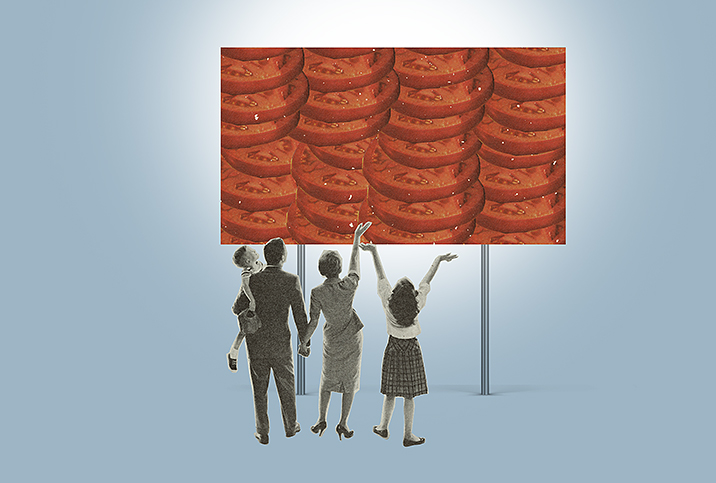Healthy Weight Loss: Why It Matters and How It's Done

Over the past couple of decades in the United States, the prevalence of obesity and severe obesity has steadily climbed, placing millions of people—about 42 percent of adults—at an increased risk for serious medical conditions, issues requiring them to spend nearly $2,000 more each year on medical bills in comparison with non-obese Americans, according to the Centers for Disease Control and Prevention (CDC).
The condition has been associated with sexual inactivity and sexual dysfunction for both men and women.
Obesity can result in infertility and difficulty in conception among women. Whereas for men, obesity may lead to lower total and free testosterone levels, and abdominal obesity is linked to erectile dysfunction (ED), especially in older men. Also, excess fat in the inner thighs and pubic region heats up the testes to temperatures that can limit sperm production.
Being overweight may also hinder the stamina that's required for sexual performance, and obesity can lead to changes in the metabolism of sex hormones, which ultimately decrease libido. For some individuals, physical appearance and body image may also impact sexual desire and activity negatively.
Luckily, research abounds in this field, as scores of medical professionals across the globe have devoted their life's work to helping patients determine if they are obese or at an increased risk of becoming obese, providing them with the strategies and information needed to achieve and maintain a healthy weight.
One such physician is Thais Aliabadi, an OB-GYN in Los Angeles whose expertise has been featured on the TV shows "The Dr. Phil Show" and "Keeping Up With the Kardashians," among others. Aliabadi is the creator of a weight-loss solution called Trimly that she said helps people whose weight gain might be related to underlying health issues such as polycystic ovary syndrome (PCOS). She said the reasons to aim for a healthy weight are innumerable.
"When someone is overweight or obese, they are at a higher risk of developing serious medical conditions, such as type 2 diabetes, heart disease, high blood pressure, breathing problems and certain types of cancers," she explained. "Losing weight significantly reduces your chances of developing these often life-threatening conditions and leads you to a longer, healthier life. Healthy weight loss looks different for everyone. As long as someone loses weight and maintains that weight loss, their health will significantly improve."
First, learn how to determine if you're obese or at risk for becoming obese, and then pick up some physician-recommended strategies for jump-starting your healthy weight loss journey.
Who's at risk for obesity and why?
Aliabadi noted that a wide range of factors, from genetics and family history to socioeconomic inequities and lack of access to nutrient-rich foods, can contribute to a person's risk of becoming overweight. She noted the close ties among mental, emotional and physical health that can trigger unhealthy weight gain.
"Some people deal with weight gain because of medications they are taking. Some are dealing with hormonal imbalances. Many patients suffer from mental health issues like depression, anxiety and eating disorders. Also, household income and where you live will have an impact on what is readily available to you," Aliabadi said.
"The reality is that sometimes fast food becomes a more affordable option for families either because of the time commitment to prepare and cook a meal or because of the higher cost of fresh foods," she added. "Many patients have been conditioned to 'finish their plate' as children and that mindset has followed them throughout adulthood. And in some cultures around the world, being overweight is a sign of wealth. No matter the cultural beliefs, being overweight has more cons than pros, and being educated about the consequences is important."
Determining if you're overweight
The first step to achieving healthy weight loss is determining if you're overweight. Sarah Musleh, M.D., an endocrinologist at Anzara Health, a telemedicine practice serving patients in seven U.S. states, offered a pair of techniques, as well as a reminder that "no one method is perfect."
Measuring body mass index (BMI)
"The recommended and most used method is to measure BMI to determine if a person is carrying excessive weight and to a degree that is considered unhealthy relative to their height," Musleh said. "BMI is correlated with percent body fat and body fat mass and is more reliable than body weight alone."
Musleh said a BMI of 25 to 29.9 is considered overweight, while a BMI of 30 or higher is considered obese. However, this method of measurement doesn't take all factors into account and might produce inaccurate readings.
"BMI will overestimate fat mass in someone who is very muscular, like an athlete," she explained. "It will also underestimate fat mass in someone with very low muscle mass, such as the elderly or someone who is frail."
Measuring abdominal circumference
"Taking measurements of the abdominal circumference can be very useful in determining if someone is carrying excessive or unhealthy weight," Musleh said. "Having a large waist circumference is associated with increased risk of cardiometabolic disease. A waist circumference of 35 inches or more is considered elevated in women, and 40 inches or more is considered elevated in men."
What is healthy weight loss?
For people who have determined they are overweight or obese, healthy weight loss is the top solution recommended by medical professionals. Musleh said one key to ensuring you're losing weight healthily is to be mindful of the speed at which pounds are lost.
"Healthy weight loss is gradual, occurring over time and at a reasonable rate," she explained. "I recommend 1 to 2 pounds per week since I do not believe in or encourage overly aggressive or restrictive diets that lead to rapid weight loss. These can cause nutritional deficiencies, symptoms of fatigue, loss of muscle mass and hair loss. By contrast, healthy weight loss generally implies that a person is able to maintain the weight they have lost rather than falling into a pattern of yo-yoing in weight and experiencing rebound weight gain. Healthy weight loss is accompanied and supported by better lifestyle habits that include physical activity, better sleep and effective ways of coping with stress."
Musleh noted that approaching weight loss from a healthy perspective matters because its effects on your overall health are tenfold.
"It is important to reach a healthy weight because losing 5 to 15 percent of body weight can improve some of the complications associated with being overweight or obese, and in some cases, these complications can be reversed," she added. "After healthy weight loss, you may experience improved mobility, less stress on joints, reduced blood pressure, better sugar levels, lowered cholesterol, improvement in sleep apnea and improved liver function, to name a few."
Healthy methods to lose weight
Musleh offered a few tips and strategies for people interested in starting their healthy weight-loss journeys. She said the best area to start is nutrition, as it has the most impact on weight reduction. However, improving nutrition alone may not be enough to produce results, she said. Therefore, a nutritious diet should be paired with other considerations, such as exercise, medication and surgical procedures.
Nutrition
"Some of my recommendations include significantly reducing sugar intake to less than 30 grams per day, improving fiber intake to no less than 30 grams per day, drinking water instead of juice or soda, limiting fruit intake to 1 cup or less per day, eating plenty of non-starchy vegetables, incorporating protein into every meal and snack, as well as eating less processed foods and more whole foods," Musleh said.
She added that mindfulness is key to improving nutrition and patients who see the best results avoid mindless snacking and late-night splurges.
"Early dinners are best, and if possible, allow about three hours before going to bed and 12 hours before the next day's breakfast," she said. "Treat your snacks like a meal. Plan ahead, enjoy your snack mindfully and move on."
Exercise
"Aim for 30 minutes per day or so of moderate-intensity exercise, including aerobic and resistance training," Musleh said.
Prescription weight-loss medication
"Medications prescribed by your endocrinologist are extremely effective and safe, and can help you maintain weight loss," she said.
Bariatric surgery
"Various medical procedures can limit the ability to consume usual portions of food," Musleh said. "These are performed by gastroenterologists and specialized surgeons."
A complete lifestyle change
Physicians such as Musleh and Aliabadi agree that embarking on a journey to healthy weight loss can pay dividends, eventually begetting a holistic lifestyle change that prioritizes feeling your best.
"What I've witnessed time and time again is that when my patients lose weight, they are more apt to exercise," Aliabadi said. "They feel good and they want to continue the feeling, so most adopt a better diet as well. When patients find a routine that works for them and they start to lose weight, they rebuild their faith in themselves and find the hope they need to get them going towards their goals."


















